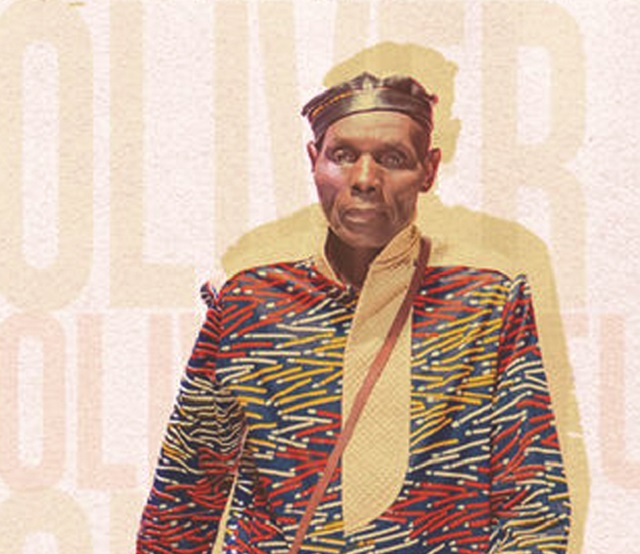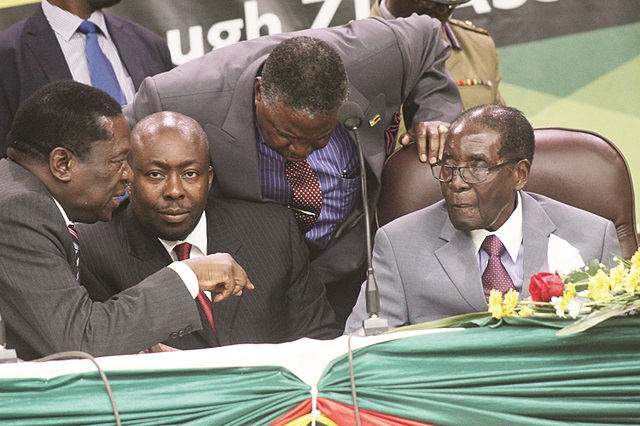Tuku magic: Why Eheka Nhai Yahwe won’t make it onto top of the music shelf

Robert Mukondiwa, Album Review
It’s an assessment that some people have made. An argument. They say that Oliver Mtukudzi, like wine, gets better with age.
It’s a wrong assessment. Especially if you listen to his latest album Eheka! Nhai Yahwe (Enjoy, My Dear Friend). It’s perhaps much more appropriate to say WINE, like Oliver Mtukudzi, gets better with age!
It is a very scary feeling. Frightening. Creepy. Chilling. How does a man create something that perfect? Near-faultless? Flawless?
Is it even constitutional? Allowed? Legal? But Oliver does it anyway. And we have come to expect it of him.
The album, a 12 track release is Oliver’s 65th album.
And there’s a sad feeling one gets when you listen to it because it feels like Oliver isn’t going to release any more albums after this. It’s too perfect, too crisp and too undying that one can’t possibly have any more genius in him to create another similar masterpiece. Or can he?
It has a distinctly aged and mature feel to it, being more of a serving for the mature ear than the frivolous wet-behind-the-ears music connoisseur.
The track Chori Nevamwe may prove to be the up-tempo track that people will fall in love with. It’s significant in a million ways. In it, Tuku celebrates like he has not done before since March 15 of 2009 when he lost his only son Sam Mtukudzi. In it one can feel the Tuku Music mourning blanket has been ripped off. For the first time in his post 2009 music, one can hear Tuku’s voice tear through the instrumentation running unbridled like a wild horse.
There seem to be certain sections of his lungs and vocal chords that had been shut down for the five years of mourning that have been re-opened for celebration and business. Tuku can laugh again. Those crevices of his lungs that had become coy have a sudden light in them again. And that’s what his late son would like to see of him. A happy Tuku.
One imagines a celebratory mood in his Pakasimbwi rural home, where he invites people to come and partake of the party. Of the merry making and feasting. His mates —anaYahwe, should come and enjoy with him. It is Tuku at his fresh height.
In Bhiza Ramambo, Tuku brings a percussion gallop feel of conquest and military banner-men to his message. When you are down and out, kneel down and say a prayer, he implores the listener. A prayer is like Bhiza Ramambo, the king’s horse. A stallion that will help you gallop to heavenly soothing from the ultimate great physician — God — who will heal your suffering. It sounds like a battle victory scene out of Games of Thrones. And the horns by legendary trumpeter bra Hugh Masekela help cement the battle hymn of the Republic nature of heavenly horns. Masekela brings that wizardry on the track Kusateerera as well! The trumpeter, flugelhornist and cornetist is at his very best on the album.
And in Ndinecha, that cough is back. And so is a laugh which is playful in Dzivirira, a song about safety of workers in the workplace. The joy in him is palpable.
He unleashes the instrument he has swallowed, that gritty voice-box, on several instances in this album, letting his voice have a heart of its own.
He is thankful too. “Thank you for wishing me well and praying for me. God bless and protect you”, he sings in the track Ndinecha. What is a Tuku album without a bit of calm meditation to the Divine after all?
Overall the album is a lyrical didactic trip down the intellectual genius of a philosophical pen-master that is Oliver Mtukudzi.
But a sad hard truth is that owing to the beauty of the mild tempo throughout most of the effort, few of these songs have the stamina and energy to make it onto Tuku’s live show repertoire for the mass market. It is a genius more for the laid back listener. The cleavage he exposes into his words is enough to give the brilliant mind an orgasm without any physicality.
Yet Pabodzi (Together) may be a great track for the dance element. Don’t compete with me. I’m a master of my trade and a master at my talent. I have my gift and you have your gift he sings in Pabodzi. It’s probably a fitting message to the youth creating bubblegum music and trying to equal or ‘beat’ Tuku. “Calm down, we are different,” he tells the competition. We can all make it in the same space. Life is not a competition. He truly is inimitable. The track is accompanied by a percussive trance induced by the traditional Katekwe hide skin African drum which sweetens the madness of a magical danceable track and master by Chinembiri Chidodo.
The backing vocals aren’t the traditional strong Tuku voices we have grown accustomed to and often pale in the shadow of Tuku’s voice, which could annoy, but the beauty is that it makes the effort a truly Tuku album because his voice and its nuances then loom large. Colossal even.
But he strays a bit from traditional Tuku territory by deploring slavery openly in Hunhapwa (Slavery). In this case, he talks of the prevailing social and economic slavery induced by unfair labour and socio-political practices and systems.
Those in power say ‘work for me and my children while your scrawny little ones linger at the periphery, at the fringes, starving and naked’, he says.
When will this end he begs. It’s a question many in Zimbabwe find themselves asking as they work for an unfeeling oppressive elite. And the song cries along with him.
Masanga Bodo — not a coincidence, a track with his wife Daisy has made waves, but it was a labour of love for Tuku, having started work on that track over three years ago, which shows that the man creates quality not just songs to add onto an album. That is why his music has stood the test of time. Which explains why this album is sprinkled with retouched oldies, Dzikama Wakura (Pss-Pss Hello), Tamba Tamba Chidembo and Hadzivake.
In Masanga Bodo, Tuku says everything is predestined. It is not by coincidence that we are who we are, born where we were or born into our totems — nzou, elephant for example.
In this album, the elephant has regained his voice. Standing large and imposing on his rear legs, Tuku wheezes then explodes into a loud Bull Elephant’s trumpet.
This could have passed for the top of every music rack . . . except the top is not high enough! — @zimrobbie












Comments